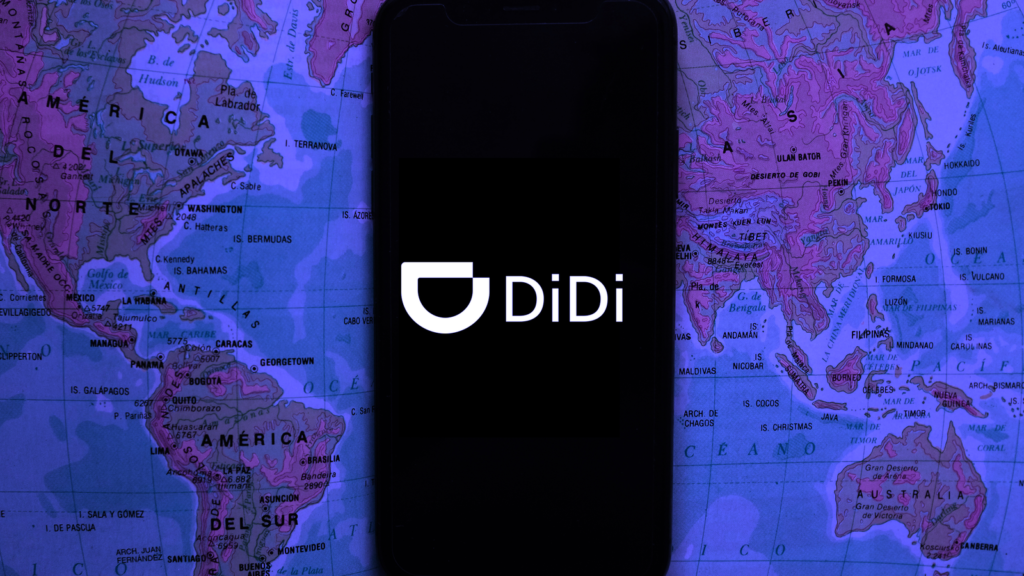We finally have more clarity regarding when DiDi Global (NYSE:DIDI) will list in Hong Kong. According to a South China Morning Post report, shares could list as early as the second quarter of this year. The company is set to delist in the U.S. and offer a one-for-one exchange for their shares. It caps a horrendous few months for DIDI stock.

The Chinese ride-hailing company is in hot water after having its New York Stock Exchange initial public offering (IPO). Chinese regulators told DiDi not to move forward with the plan, but they continued anyway, and now it’s costing them greatly.
For investors, it is looking like a costly investment. They rushed in with the Didi IPO. And can you blame them? The Chinese market is huge, and its middle class is the biggest globally. In 2020, the Internet Society of China estimated that transactions reached around $39 billion.
Only the Risk Tolerant Remain in DIDI Stock
However, the regulatory issues mean that only risk-tolerant investors will even remotely consider investing in DIDI stock. National security in China can be a vague and broad term. The laws purporting to cover all key industries are only limited by the imagination of those that enforce them. That will not change with a listing in Hong Kong.
But what about the investors who haven’t cashed out yet? For them, there are multiple options. Most will still give a nice return on their investment. However, any losses already incurred cannot be recouped. But you can still make some nice gains on the remaining options on the table.
What is more interesting is where the company is headed next. China won’t deal a fatal blow to this company; it’s just too valuable. Therefore, expect it to mount a comeback when it’s all said and done.
China’s Ride-Hailing Market and Regulation
The “Millennial lifestyle subsidy” is one of the best things in mobility right now. Ride-hailing services give discounted rates to people who use their service, which can save you money if you aren’t looking for anything too extravagant or long-term like car ownership.
Ride-hailing companies are now public corporations with massive investor bases and global reach. In theory, this means that they should withstand any setbacks faced by their competitors while still being profitable on an individual level — but there’s always something compelling enough about new ideas or fresh approaches that may prove too much for some established brands in the industry.
For investors, there are several things to consider; one of them is its position in China. China has been known as the world’s factory for many years due to its low labor costs and weak labor regulations. This reputation is mostly still intact today, with strong business ecosystems throughout Chinese cities like Shenzhen or Zhuhai.
That has helped increase consumer incomes, which has given rise to the middle-class consumer in China. The sharing economy is booming, and the new generation of mobility customers want to be part of this exciting trend. Ride-hailing services now focusing on tier three, four, or five cities because they are still below capacity compared with other parts of their country.
The regulatory turmoil has allowed competitors like Meituan (OTCMKTS:MPNGF) to infringe on the market share that was once solely occupied by Didi. But it still remains the number one company in the sector.
With its home market being the source of much confidence, Didi is counting on expanding into other countries. However, it faces an uphill battle as its dominance isn’t yet established, and many competitors await them. That will weigh down DIDI stock for the foreseeable future.
Earnings Highlight Recent Financial Woes
Didi is still the most prominent ride-hailing company in China. However, regulatory issues are still concerning for executives. The company’s financials are not looking good, with their latest quarterly report revealing a $4.7 billion loss after revenues shrank in the September quarter — a direct result of increasing costs due to regulatory actions.
The company’s sales have fallen more than 13% sequentially and 1% year on year. It adds to investors’ woes that are already reeling from the delisting announcement and what the future holds for Didi.
Operating expenses jumped by 16% during the last quarter to meet new compliance demands. In a move that should raise security concerns for all businesses operating in China, Didi’s delisting is unprecedented and highlights the depth of Beijing’s concern about sensitive data leaking out.
One of the most important things for a company’s long-term growth is unrestricted access to data from consumers. But this may not be possible in China, where Didi Global is facing restrictions on using customer information because it doesn’t meet national standards — and there are fears these rules could extend elsewhere too.
The company is a clear leader in China’s $50 billion domestic ride-hailing markets, but there are numerous hurdles it must overcome to maintain this position. If Didi can succeed with its plans for future growth and regulation, it will be well on track to achieve its ambitious goals by continuing its international expansion. For now, investors and the company have to roll with the punches.
DiDi Stock Makes Sense for the Risk-Tolerant Investor
For several months ahead, the future of DIDI stock will be vague. That means only investors confident in its recovery and outlook should pursue this one. The company has an excellent asset-light business model and is operating in a huge and growing market.
Even if you hold onto shares and convert to overseas exchange, the fundamentals and outlook are enticing. If the company goes private, you have a great chance to profit from the transaction. Finally, the company itself is a great prospect. Its issues deal with the regulatory environment in Beijing, not anything of the company’s own doing.
The DiDi carsharing service has expanded to 14 countries outside China, including Australia and New Zealand. Last year, the company continued its international expansion with the recent launch in South Africa for their fast-growing network that now includes many more countries across Latin America, Japan, and Mexico. And it has yet to step onto European shores, a huge potential market for DiDi.
There is an incentive to hold onto your DIDI stock for all these reasons.
On the publication date, Faizan Farooque did not have (either directly or indirectly) any positions in the securities mentioned in this article. The opinions expressed in this article are those of the writer, subject to the InvestorPlace.com Publishing Guidelines.
Faizan Farooque is a contributing author for InvestorPlace.com and numerous other financial sites. Faizan has several years of experience in analyzing the stock market and was a former data journalist at S&P Global Market Intelligence. You can check out his analysis on InvestorPlace and TipRanks.
